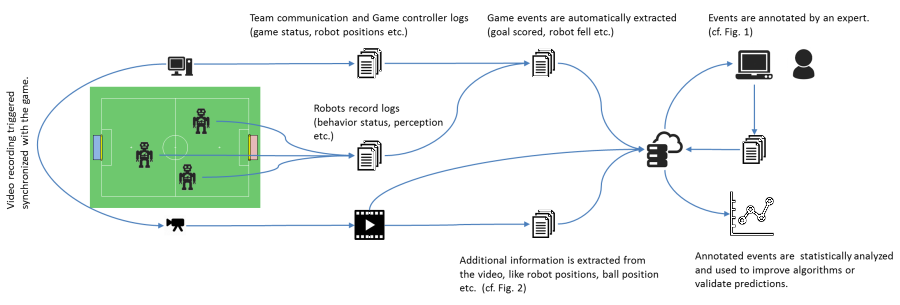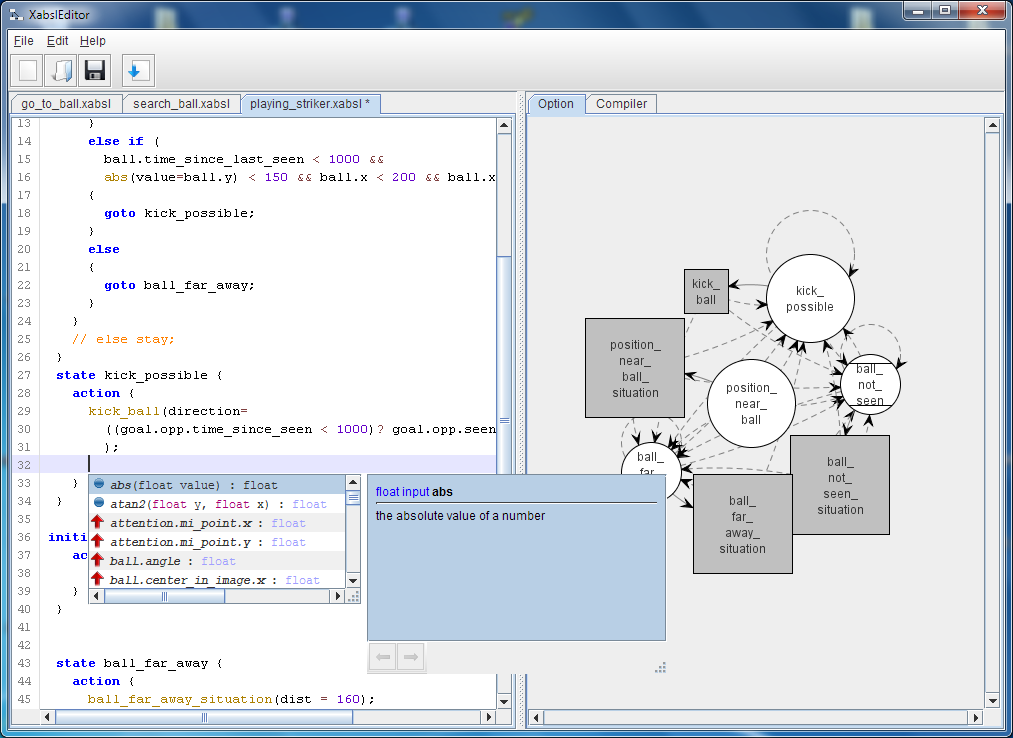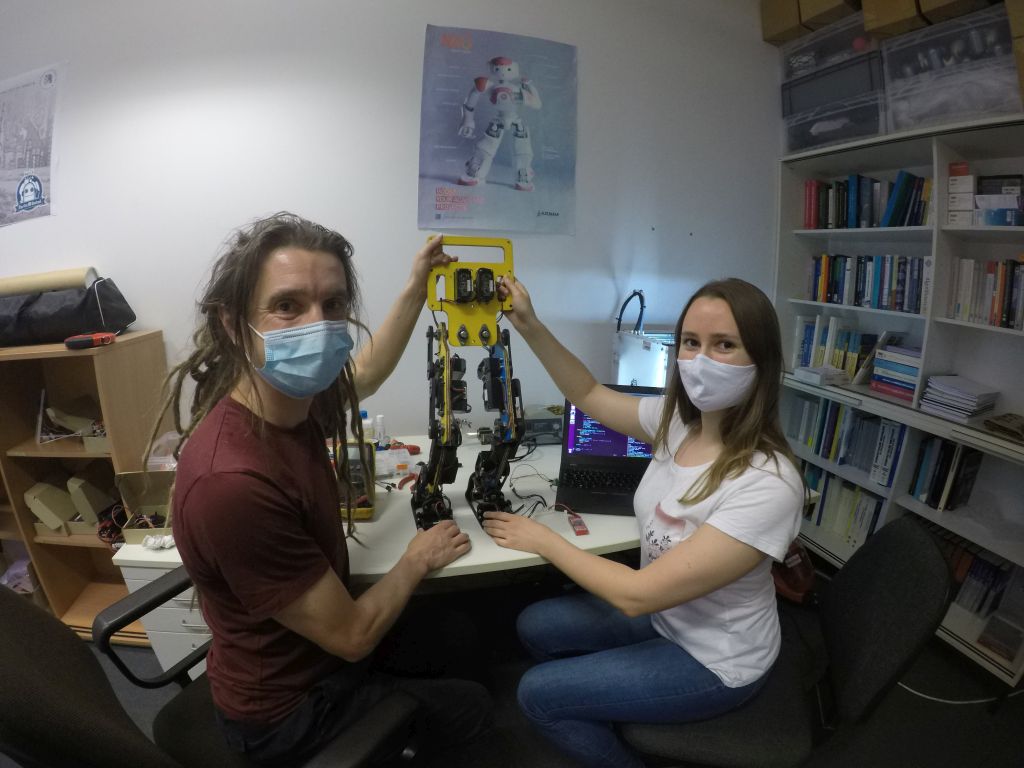Projects
Data Science Infrastructure
Our team has been participating in the RoboCup competiton since 1998. Multiple types of data have been collected since 2009 and stored in an unstructured way. While being abundant, these data could not be manipulated easily, and was exclusively accessible to team members. This project will unlock the data potential by storing it in a structured database where multiple types of tools and operations can now be implemented. What has been done The robots collect data during each game and write this in a binary file. Additional data like configurations files and the git commit of the source...
Continue reading
Tools for Data Driven Research and Development in RoboCup
An empirical scientific discipline requires a set of methods and practices for evaluation and comparison of proposed models and solutions. RoboCup provides a unique common test scenario for robotics, but its potential is, by far, not realized. Conducting games incurs high cost in terms of effort, time, and money. The scientific outcome, however, is quite limited and often not very conclusive. In most cases only the final score of the games provides feedback about the performance of a team. In this project we develop a toolbox (a set of tools) to support collection, organization and...
Continue reading
XABSL Editor
XabslEditor is a graphical editor for the "Extensible Agent Behavior Specification Language" XABSL (see publication below [ 1 ]). It is implemented in Java and can run on every platform that supports Java (Windows, Linux, Mac, ...) Source code and download https://github.com/BerlinUnited/xabsleditor List of the most important functions running on all platforms (since it is written in Java) its open source (all used components are open source to) syntax highlighting live view of the state graph auto completion: completion of symbols with parameters and enums live documentation (generated...
Continue reading
Humanoider Roboter Gretchen
Angelehnt an biologische Systeme gewinnt die Forschung an verkörperter Künstlicher Intelligenz (Embodied AI) zunehmend an Signifikanz. Biologische Systeme sind inhärent dezentral aufgebaut wobei einzelne Teile des Körpers über eigene Intelligenz verfügen. Intelligentes Verhalten entsteht erst dann aus dem Zusammenspiel einzelner Komponenten und der Interaktion mit der Umgebung. Daher ist der Körper ein unerlässlicher Teil bei der Forschung nach Intelligenz. Besonders interessant sind dabei die humanoiden Roboter, welche immer noch schwer zugänglich, mit hohen Kosten verbunden und oft von...
Continue reading